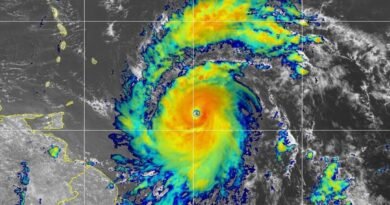Minister Blair Unaware of Reason for Delay in Warrant on Ontario Politician
Defence Minister Bill Blair mentioned that he was unaware of the reason behind the delay in approving a warrant application to surveil an Ontario politician during his time as the minister of public safety.
The Foreign Interference Commission revealed that CSIS had submitted the warrant 54 days before it was finally signed off by Blair in the spring of 2021, even though the usual approval time for a minister is between four to ten days. Blair testified on Oct. 11 that he had approved two other warrants during that same period.
CSIS had informed Blair’s then-chief of staff, Zita Astravas, before sending the warrant for approval, and there were also two meetings held with CSIS after the warrant was sent to Blair’s office.
Blair stated that he was unaware of these activities conducted by Astravas, and he only learned about the warrant’s subject on the same day he signed it in May 2021, 54 days after it originated from CSIS.
During this period, Blair was mainly working from Toronto due to COVID-19 restrictions, necessitating visits to the CSIS regional office for sensitive discussions.
Blair expressed uncertainty about the reason behind Astravas’s delay in providing him with the warrant application and confirmed that he did not discuss the delay with her. Warrants must be approved by the minister of public safety before being reviewed by a Federal Court judge.
The minister also did not comment on whether there was a delay or if it took too long for him to receive the warrant application for signing.
Blair mentioned that he expected to be informed promptly if there were any concerns about the approval process, but no one brought any issues to his attention.
He also stated that he did not have any concerns about being notified in a timely manner regarding warrant approvals.
Warrant Subject
The subject of the CSIS warrant under investigation at the inquiry has not been publicly disclosed in the recent hearings.
Astravas held leadership positions while Kathleen Wynne was premier, during which Chan served as a cabinet minister.
Blair revealed that he had been briefed by CSIS about the warrant subject several months prior to receiving the actual application but stated that there was no discussion during the briefing about further investigative actions related to the subject.
When asked if he was surprised by the subject of the warrant on day 54, Blair responded in the negative and mentioned that he did not discuss the briefing or warrant with the Prime Minister’s Office.
Chief of Staff
Former chief of staff Astravas informed the inquiry on Oct. 9 that she had not intentionally delayed presenting the warrant to Blair and had prioritized items on his agenda with the help of CSIS.
Former CSIS officials involved in the warrant process considered the delay unusual and frustrating for operational staff.
Blair addressed questions regarding Astravas’s testimony and her meetings with CSIS regarding the warrant application.
During the private evidence submission, it was indicated that CSIS’s director informed Blair about their intention to move forward with the warrant application.
Blair mentioned that he was not aware of CSIS’s plans before day 54 when the warrant was presented to him for approval.
Initial Briefing
Four days after CSIS submitted the warrant, it was approved by then-deputy minister Rob Stewart, followed by an initial briefing to Astravas nine days later.
Blair stated that he was not aware of this meeting, Astravas’s questions, or any discussions held on his behalf.
Blair reiterated that his only concern during the warrant approval process was to fulfill his statutory responsibilities, emphasizing that there were no other considerations or political motives involved.
When asked if he would recuse himself from approving a warrant if he knew the target, Blair mentioned his extensive experience with warrant applications and stated that he would recuse himself only if a conflict of interest existed.
Liberal MP Mendicino, Blair’s successor, emphasized the importance of vigilance in preventing potential abuses from elected officials when making decisions related to foreign interference and political figures.
The public hearings phase of the inquiry will conclude with appearances from Prime Minister Justin Trudeau, his office staff, and Public Safety Minister Dominic Leblanc next week.





